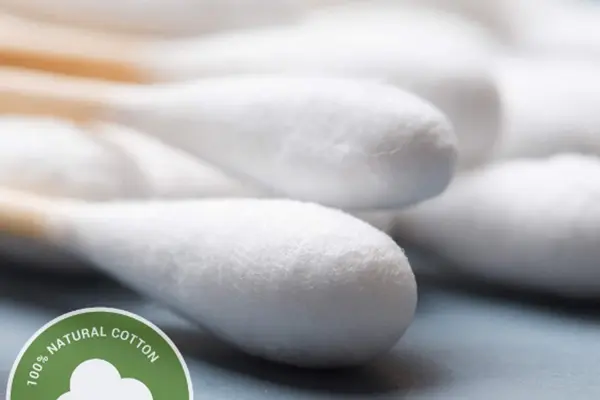Cotton swabs are everyday essentials found in many households. They are versatile tools, used for cleaning, makeup application, arts and crafts, and more. But as environmental awareness grows, people are questioning the sustainability of these products. Are cotton swabs biodegradable? The answer depends on the materials they are made from. In this article, we’ll explore the factors that determine the biodegradability of cotton swabs and highlight the benefits of choosing biodegradable high-quality cotton swabs.
What Does Biodegradable Mean?
Biodegradability refers to a material’s ability to decompose naturally through the action of microorganisms like bacteria and fungi. Biodegradable products break down into natural elements, such as water, carbon dioxide, and organic matter, without leaving toxic residue. This process is essential for reducing waste and minimizing environmental harm.

Are All Cotton Swabs Biodegradable?
Not all cotton swabs are biodegradable. The biodegradability of a cotton swab depends on the materials used in its construction:
- Cotton Tips
The cotton tips on most swabs are generally biodegradable, as cotton is a natural fiber. However, if the cotton is treated with synthetic chemicals, dyes, or plastic-based adhesives, its ability to decompose may be compromised. - Stems
- Plastic Stems: Many traditional cotton swabs have plastic stems, which are not biodegradable. These contribute to plastic pollution, especially in marine environments where they often end up as litter.
- Paper or Bamboo Stems: High-quality cotton swabs with stems made from paper or bamboo are fully biodegradable and environmentally friendly. These materials break down naturally and do not harm ecosystems.
The Case for Biodegradable High-Quality Cotton Swabs
Using biodegradable high-quality cotton swabs is an excellent way to reduce environmental impact without sacrificing utility or convenience. Here are some key benefits:
- Eco-Friendly Materials
Biodegradable cotton swabs are typically made from sustainable materials like organic cotton and bamboo or FSC-certified paper. These materials decompose quickly, leaving no harmful residue. - Reduced Plastic Pollution
Switching to biodegradable options helps reduce the staggering amount of plastic waste generated annually. Plastic cotton swabs are among the top items found in beach cleanups, highlighting their contribution to pollution. - Sustainability
High-quality cotton swabs are often manufactured with a focus on sustainability. For example, bamboo is a fast-growing, renewable resource that requires minimal water and no pesticides. - Versatility Without Harm
Biodegradable swabs are just as versatile as their non-biodegradable counterparts. Whether you’re cleaning delicate electronics, applying makeup, or using them for first aid, they perform effectively without adding to landfill waste.
How to Choose Biodegradable Cotton Swabs
When shopping for biodegradable cotton swabs, look for the following features:
- Organic Cotton Tips: Ensure the cotton is free from synthetic additives or harmful chemicals.
- Sustainable Stems: Opt for swabs with bamboo or paper stems rather than plastic.
- Certifications: Look for products certified by eco-labels like FSC (Forest Stewardship Council) for paper stems or USDA Organic for cotton.
- Packaging: Choose products with recyclable or compostable packaging to further reduce waste.
Disposing of Biodegradable Cotton Swabs
To maximize the eco-friendliness of your biodegradable high-quality cotton swabs, dispose of them responsibly:
- Composting: If the swabs are entirely biodegradable, including the stems and tips, you can add them to your compost bin.
- General Waste: If composting isn’t an option, disposing of them in general waste is still better than plastic swabs, as they will decompose faster in landfills.
The Impact of Small Changes
Switching to biodegradable cotton swabs may seem like a small step, but it has a significant impact. By choosing environmentally friendly alternatives, you contribute to reducing pollution, conserving natural resources, and promoting sustainable manufacturing practices. Collectively, these small changes lead to a healthier planet.
Conclusion
So, are cotton swabs biodegradable? The answer depends on their materials. Traditional cotton swabs with plastic stems are not biodegradable and contribute to environmental pollution. However, biodegradable high-quality cotton swabs, made from materials like bamboo and organic cotton, provide an eco-friendly alternative. By making the switch to sustainable options, you can reduce your ecological footprint and help protect the environment for future generations.
Post time: 11月-26-2024





